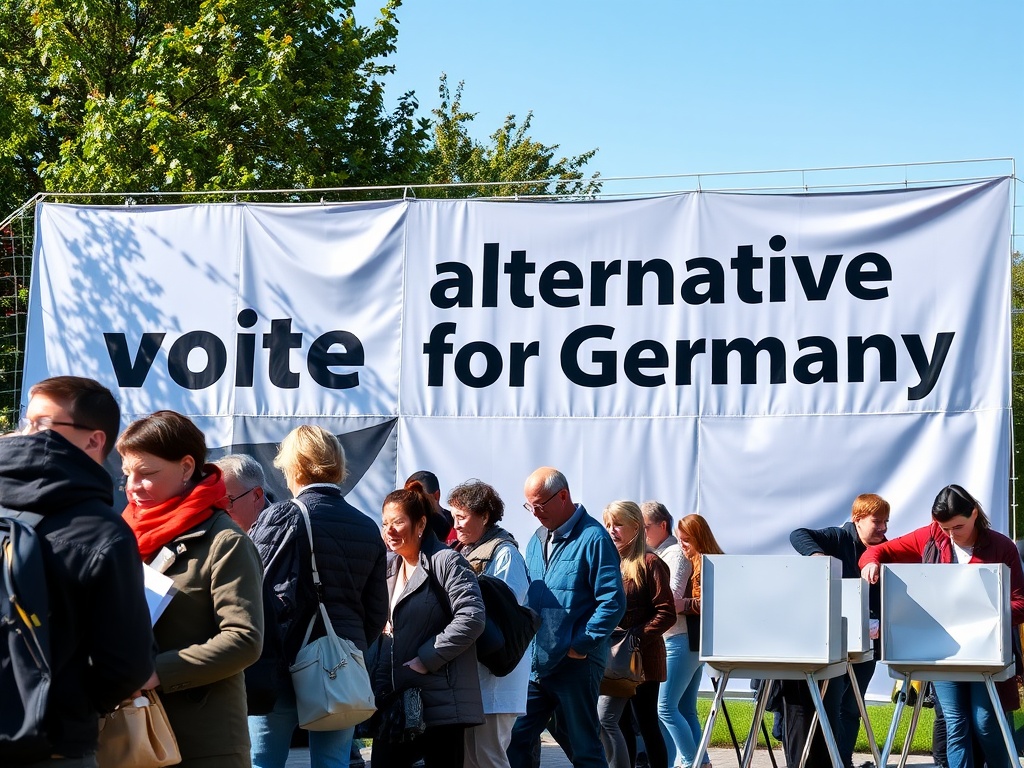Far-Right Surge in German Elections

The far-right Alternative for Germany (AfD) party is projected to emerge as the second-largest political force in Germany, based on the latest exit polls from the nation’s election. The AfD is anticipated to secure a historic 20% of the vote, marking a significant milestone for the party, while the conservative CDU/CSU alliance, led by opposition figure Friedrich Merz, is on track to win the election with around 30% of the votes cast.
Should these predictions hold true, it would represent the AfD’s most successful showing in a federal election to date. The CDU/CSU’s projected victory would confirm their status as the dominant party in this electoral cycle. Meanwhile, the outgoing Chancellor Olaf Scholz’s center-left Social Democrats are forecasted to achieve only 16-16.5% of the vote, which would result in their poorest post-war performance in a national parliamentary election.
Trailing the Social Democrats are the environmentalist Greens, who, as Scholz’s coalition partners in the outgoing government, are expected to obtain approximately 13.5% of the vote. Alice Weidel, the AfD’s candidate for chancellor, expressed her party’s excitement by stating, “We have become the second-strongest force.” She also mentioned that the AfD is “open for coalition negotiations” with Merz’s party, highlighting that “otherwise no change of policy is possible in Germany.” However, Merz has firmly ruled out any collaboration with the AfD, a sentiment echoed by other mainstream political factions.
Merz, who is poised to become Germany’s next chancellor, praised what he described as a “terrific election campaign,” while also acknowledging the legitimacy of his political opponents. He remarked, “Everybody in the world sees that Germany has a reliable and trustworthy government,” adding that “now we can also actually party here.” He further noted, “Tonight we will be celebrating, and as of tomorrow, we will be resuming our work.”
Following the announcement of the exit poll results, Merz was congratulated by Markus Soeder, the Bavarian state premier and leader of the Christian Social Union. Merz emphasized the importance of forming a government swiftly, stating, “Now we will talk together, and it’s important to form a government as soon as possible… The world outside is not waiting for us.”
Among the three smaller parties, the hard-left Left Party appears set to secure representation in parliament with an expected 8.5-9% of the votes. The pro-business Free Democrats and the Sahra Wagenknecht Alliance are hovering just around the critical 5% threshold required to gain seats in the parliament. The final composition of the government will depend on how many parties manage to enter parliament, influencing whether Merz will need one or two coalition partners.
Carsten Linnemann, the general secretary of Merz’s Christian Democratic Union party, declared, “One thing is clear: the Union has won the election.” He confidently stated, “The new chancellor will be called Friedrich Merz.” In contrast, Matthias Miersch, the general secretary of the Social Democrats, acknowledged that voters had dealt his party “a historic defeat,” conceding that Merz now has a mandate to form the new government. He attributed the loss to three years of an unpopular administration, suggesting that “this election wasn’t lost in the last eight weeks.”
Election Context and Results
The German exit polls, complemented by pre-election polling that accounts for absentee ballots, reflect a nation grappling with concerns over prolonged economic stagnation and pressures to address migration issues. The backdrop of the election includes rising uncertainties surrounding Ukraine and Europe’s alliance with the United States.
As the most populous country in the 27-nation European Union and a key NATO member, Germany plays a vital role in shaping responses to the continent’s challenges, including its significant support for Ukraine as the second-largest weapons supplier after the U.S. While exit polls provide early insights into electoral outcomes, they are not definitive; however, historically they have proven largely accurate.
- Christian Democrats and their Bavarian sister party (CDU/CSU) – 29%
- Alternative for Germany (AfD) – 19.5%
- Social Democrats (SPD) – 16%
- Greens – 13.5%
- Left Party – 8.5%
- Free Democrats (FDP) – 4.9%
- BSW Party – 4.7%




